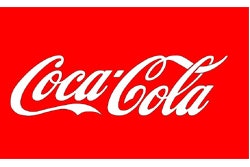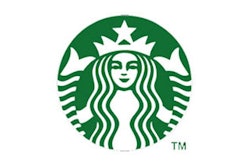KALAMA, Wash. (AP) — Two-foot-long cylinders of glass, still red-hot and glowing, drop once a second into molds at Bennu Glass' wine-bottling manufacturing facility.
By the end of the day in this sprawling, nondescript warehouse, 220 tons of melted and mixed sand, soda ash and limestone will drop like small bombs from a molten soup down into forming machines.
They will rattle like scarlet-tinged soldiers toward cooling stations, quality control inspectors, palletizing machines and, finally, trucks waiting to send 12.7 million bottles a year to the Northwest's fast-growing commercial wine industry.
"Thousands of cars drive right by here every day on the freeway," said Jake Wendler, a third-generation glass man and the company's sales and service manager. "And they have no idea about the amazing things taking place inside."
Despite the obscurity, company officials are excited about their growth prospects, in large part because of ongoing demand generated by expanding West Coast wine operations.
Oregon alone has added dozens of new wineries in the past several years. Along with hundreds of acres of new vineyard plantings and recent confirmation that California wine giant Jackson Family Wines has purchased significant tracts in the Willamette Valley, the facility appears poised to grow every bit as fast as the industry itself.
"As demand continues to rise, there's going to be a glass shortage," Wendler said. "Our expectation is that more and more operations will turn to us to for supply."
Most amazing of all, perhaps, is that Bennu, the newest glass factory in the U.S., is operating at all.
The factory, originally built in 2007 for Pennsylvania-based Cameron Family Glass Packaging, suffered a near-fatal setback after a furnace leak in January 2009.
More than 125 tons of molten glass, heated to 2,500 degrees and pouring like lava from a volcano, escaped into a basement containment area.
About 325 more tons, as deep as 12 feet in some areas, remained in the 470-ton electric melter and eventually had to be jackhammered out.
Initial predictions of a quick fix evaporated, dooming the $110 million facility and its 100 family-wage jobs. Cameron closed the plant and filed for bankruptcy in late 2009.
Resuscitation, however, wasn't long in coming.
Medley Capital, a private investment firm with offices in New York and San Francisco, liked the growth potential of the West Coast's wine industry and purchased most of the factory's assets in a March 2010 foreclosure sale.
It invested $20 million, most of which went toward a sophisticated oxy-fuel furnace to replace the failed electric melter, and reopened the factory in July. The first bottles came off the twin production lines — named Ginger and Mary Ann after Gilligan's Island characters — on Aug. 5.
When it came to naming the company, however, the responsibility was all Jerry Lemieux's, Medley's CEO.
Initially, he wanted to call the company Phoenix Glass, after the long-lived bird from Greek mythology that obtains new life by rising from the ashes of its predecessor. He quickly discovered that the name was already trademarked.
After a little more digging, he found many mythological birds, spanning numerous cultures that arose from their own ashes. One of those was the Egyptian Bennu bird.
"He chose that one," said Wendler, laughing, "because it was the only one he could pronounce."
The plant now runs round-the-clock with 95 employees who staff two 12-hour shifts.
Bennu remains a tiny player in the nation's wine-bottle manufacturing universe, dwarfed by giants such as Verallia and O-I. The latter, founded as Owens-Illinois, has a relatively small plant in Portland.
Wendler and other company officials say they aren't daunted.
"It's been a little slower than we'd hoped right out of the gate," said Wendler, whose father, Dwayne Wendler is the plant manager. "But I'd say we're here to stay."
The company's first customer, A Blooming Hill Vineyard & Winery in Cornelius, agrees.
"We try to do things as locally as possible," said Holly Witte, who along with her winemaker-husband, Jim, runs the 1,500-case operation. "I was thrilled when I learned we had a producer right in our own backyard."
The winery had bad experiences with some of the Chinese-produced bottles that flood the U.S. market, said Witte, acknowledging the irony of Oregon's heralded, "hand-crafted" wines ending up in poorly produced foreign-made glass.
"Purely based on the glass we've gotten from them so far," she said, "they have a fantastic future ahead of them."






















